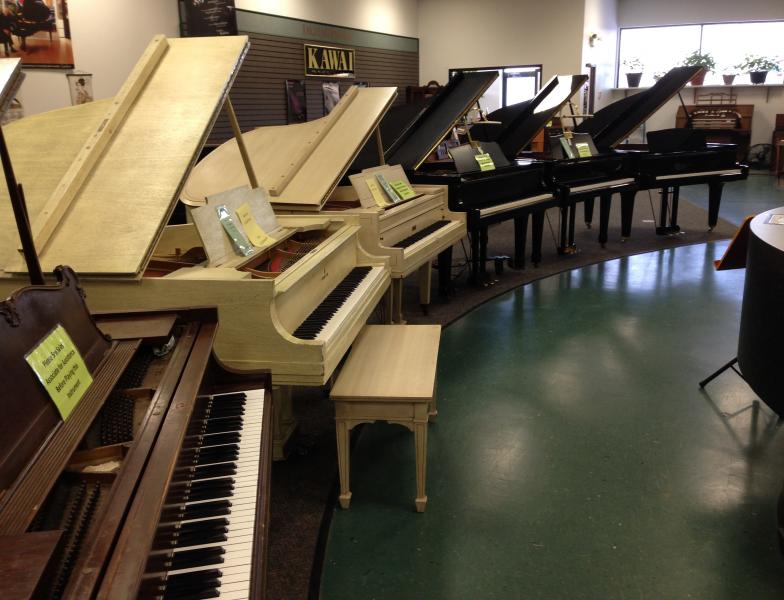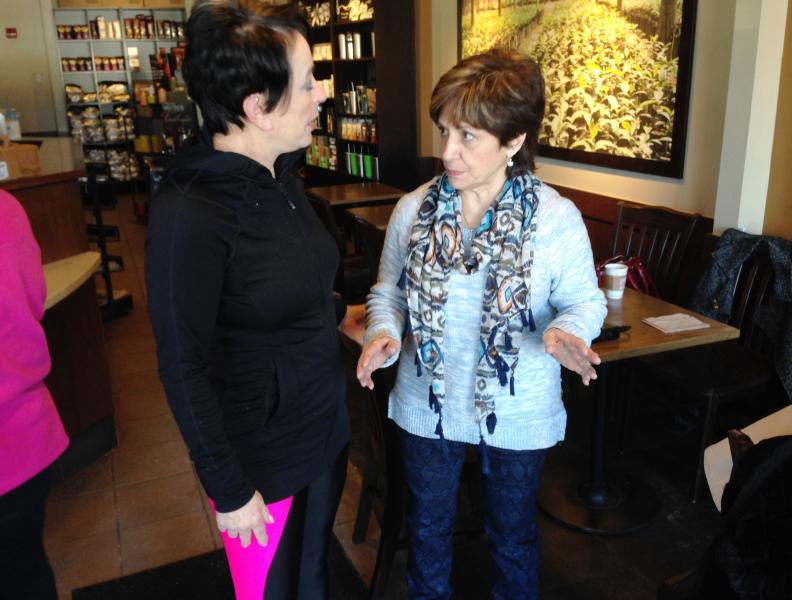A piano being tuned is a common sound on the way into Pellegrino Music in North Canton. Jerry Pellegrino has run the place for a lifetime. And, from the long row of grands, baby grands  and uprights arcing across the store, he’s a man to talk to about a piano. and uprights arcing across the store, he’s a man to talk to about a piano.
He notes that “in 1900, the two most valuable things to have in an American home were a bicycle and a piano. And if you had both, you were the hot number on that street.”
That’s changed, according to Pellegrino. He says says even though pianos aren’t status symbols any more, and despite the digital revolution, they remain solid sellers. He cites versatility and history.
A master at work
At luncheon spot nearby, master piano tuner Mark Shengle says the piano -- a keyboard technology before there was anything electronic -- goes back centuries: “1711, the piano forte, a fellow named Christafori, from Italy.”
But, Schengle says, many of today’s pianos are better than those of old. "Ssome of the materials are different, and some of the workmanship is way better because they have new machines to make the parts.”
For the accomplishment-oriented
Jerry Pellegrino sees another reason for pianos holding their sales position: They appeal on a number of levels to accomplishment-oriented people. Especially those in high-stress jobs -- like doctors -- find playing piano helps them unwind, stay mentally sharp, and be creative. Especially those in high-stress jobs -- like doctors -- find playing piano helps them unwind, stay mentally sharp, and be creative.
"Most of the really successful CEOs of big companies play music. Of the Fortune 50 CEOs, 47 play an instrument.”
Mark Shengle is seeing something similar.
"I find a lot of professional people going back to it. And I’ve got clients in their early 60s; they’re semi-retired, they’re taking lessons again.”
Getting the band back together
Says Pellegrino, "The number of retirees is growing with the graying of the baby boomers. Bands are forming, these are like school bands, but with retirees.
"A lot of them played in high school, but a lot of them have never played. And they literally take lessons. And it’s a wonderful thing.”
Keeping brain and body moving
Marie Herncane is a well-known northeast Ohio piano teacher.
She’s having coffee at a shop in Jackson Township. She says while she’s always had older students, their numbers are increasing with more adults looking to be healthier and more vital as they age. in Jackson Township. She says while she’s always had older students, their numbers are increasing with more adults looking to be healthier and more vital as they age.
"It's part of the reason adults take this up. It’s a physical thing; to keep moving; to keep the joints flowing. But, I have quite a few adult students who are interested in keeping the brain going.”
Consolidation and another 300 years
So, where it is all going?
Music store owner Jerry Pellegrino says, "Like so many other specialty things, we’re going to see one store per huge geographic area. So, there will always be people who want pianos. But it's not going to be down the street a mile from your house.”
Master tuner Mark Schengle adds, 'It’s still strong in certain areas — lots of upper-end instruments and institutions.  As far as where it’s going to go? I think its going to be steady. Most dealers are doing not great, but well.” As far as where it’s going to go? I think its going to be steady. Most dealers are doing not great, but well.”
And, long-time piano teacher Marie Herncane says, "Let’s give it another 300 years, and we’ll talk. I don’t see it going away."
Making pianos
Although piano sales have remained stable in the U.S., manufacturing of the instruments has not. The leading maker of pianos sold in America is China.
However, the famed Steinway pianos made in both the U.S. and Germany use piano plates -- the big harp-like devices that carry the strings -- make at a foundry in Springfield, Ohio. |